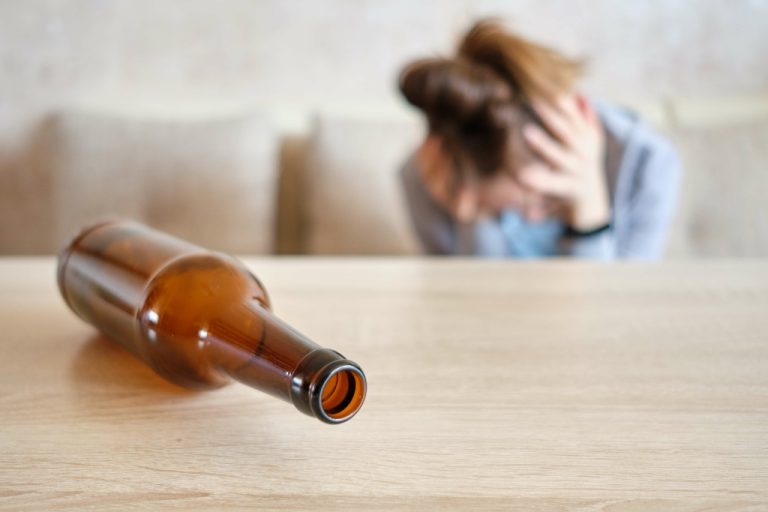Should I Go Back To Rehab After A Drug Or Alcohol Relapse?
Falling back into old habits is easy, as it’s a common response to cravings, boredom, triggers and doubt. If you’re asking yourself whether you need to go back to rehab, something has obviously gone wrong during your recovery. It’s a terrific sign that you realize that and are aware that you have a problem again. If you’ve only been to treatment once, though, and believe that one-time use following by remorse and a stronger sobriety warrants a trip to rehab, the good news is you may not need to go back into rehab.
The Ultimate Guide to Returning Home After Drug Rehab
If you feel as if your coping skills are lacking and you aren’t meeting your normal obligations, it might be time to reach out for help. This includes keeping up with hygiene, household chores, going to work, attending school, caring for family, and more. 12 Keys Rehab offers holistic drug treatment to help you overcome addiction.

Should I Go Back To Rehab After A Drug Or Alcohol Relapse?
Like caution or danger signs on the highway, triggers are things that can precipitate a relapse. Recognizing both the signs of a stale program of recovery and potential relapse triggers helps you avoid them and maintain sobriety. To keep your recovery on alcoholism solid footing, you need a positive mental outlook, a strong plan of recovery, and a commitment to keeping your program fresh and vital, one day at a time.
Questions About Treatment?
- Knowing whether you need to go back to a treatment center depends on whether you’ve had a “slip” or if you have fully relapsed and are using again on a regular basis.
- Your body may no longer be able to handle the same amount of a substance that was previously used, and overdose can occur.
- For example, someone with an alcohol use disorder should avoid going to a bar or seeing their old drinking buddies.
- But if you give proper attention to all three legs, and work your program to incorporate growth and healing into all three aspects, you’ll build a solid, supportive place for your recovery.
Managing addiction sometimes takes more than one stay in rehab, which is okay and part of the ongoing process. You can take many pathways, and everybody faces challenges and barriers, and you have the power to choose how to meet these difficult times. Doing your best is all you can do, and like many people say, taking each day as it comes without beating yourself up over minor mishaps is the best way to move forward when things are hard.
Aftercare services can range in price depending on the level of service required. If you decide to return to your hometown after rehab, this will typically cost less than going to a distant city. There is no one-size-fits-all answer for how much rehab will cost. Most rehab facilities do not charge patients on a sliding scale based on their income. It is essential to make sure you have adequate insurance coverage before entering treatment, as the financial burden of recovery may be more than you can handle.

You will already have the foundations of many therapeutic processes, and it will be less intimidating than it was your first time. You know it is possible to stop substance misuse, and you know that you are strong enough to get through challenging times. Depending on the severity of your relapse, you may need to go through a medical detox program again. Stopping the use of a drug, especially if the relapse occurred over a sustained period, may cause dangerous withdrawal symptoms, so ask your doctor if you are unsure whether professional detox is required. Christina Kuzio has been a Registered Nurse for https://befr-20202001cb.iziii.pro/en/famous-musicians-who-lost-to-addiction-and-those/ 40 years – the majority of those years working in a large South San Francisco Bay Emergency Room.
- Throughout their program, clients work with Kaylyn directly one-on-one in removing toxic people from their lives and rebuilding trust with loved ones.
- Given that relapses occur so often, it’s not surprising that some will need to go to back rehab more than once in order to stay on track in their recovery journey.
- You find a plan of action that works to keep you sober, and you follow it.
- My goal is for everyone to enjoy coming to work, and for their days to be as productive as possible toward the end of helping people put their lives back together.
What Are My Treatment Options After A Relapse?
Carrie counsels clients with abuse trauma, helps going back to rehab them rebuild their self-worth and assists them in obtaining healthy coping skills. Also, Carrie works on a domestic violence hotline every weekend. Caitlin is our client’s family’s point of contact during the program. For the first week or so, she calls daily to provide updates during the detox process and then weekly during the entirety of the program.
Many recovering addicts overlook the fact that what you think eventually becomes what you do, and what you do is who you become over time. So to maintain your new, healthy and sober lifestyle, you first need to think of yourself as a successfully recovering addict. Find rehab for yourself or a loved one by speaking with a treatment provider.
If you feel that any of our content is inaccurate, out-of-date, or otherwise questionable, please contact at Sunnyside is a private, anonymous way to start improving your relationship with alcohol. I knew at some point she’d write a really big hit, and it was ironic that the hit she wrote was, verbatim, that day, and it was mocking me.
Knowing how to respond if a relapse happens is also incredibly important when it comes to maintaining long-term recovery. Relapsing during the early stages of recovery is common, and many people who do so are able to bounce back and regain control of their sobriety. However, relapsing can be dangerous — once you stop using and lose your tolerance, you’re more likely to experience negative side effects or overdose when you use again. The first four years of sobriety are the most dangerous years for relapse. Relapse rates for addicts range from 50% to 90% in those volatile first four years of recovery. Many addicts are unaware of this fact and feel intense guilt and remorse when they “slip” and use.





No Comments